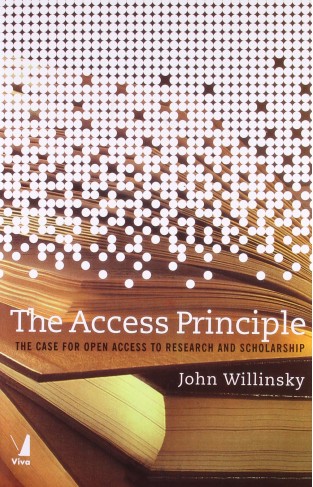The Access Principle: The Case for Open Access to Research & Scholarship
The Access Principle: The Case for Open Access to Research & Scholarship
By:
-
Rs 595.00
- Rs 2,380.00
- Ex Tax :Rs 595.00
- Price in loyalty points :644
You saved Rs 1,785.00.
Due to constant currency fluctuation, prices are subject to change with or without notice.
WE ARE OFFERING THE DISCOUNT IN THIS BOOK DUE TO ITS SLIGHTLY DAMAGE CONDITON
An argument for extending the circulation of knowledge with new publishing technologies considers scholarly, economic, philosophical, and practical issues. Questions about access to scholarship go back farther than recent debates over subscription prices, rights, and electronic archives suggest. The great libraries of the past - from the fabled collection at Alexandria to the early public libraries of nineteenth-century America - stood as arguments for increasing access. In The Access Principle, John Willinsky describes the latest chapter in this ongoing story - online open access publishing by scholarly journals - and makes a case for open access as a public good. A commitment to scholarly work, writes Willinsky, carries with it a responsibility to circulate that work as widely as possible: this is the access principle. In the digital age, that responsibility includes exploring new publishing technologies and economic models to improve access to scholarly work. Wide circulation adds value to published work; it is a significant aspect of its claim to be knowledge. The right to know and the right to be known are inextricably mixed. the best-equipped lab at a leading research university and a teacher struggling to find resources in an impoverished high school. Willinsky describes different types of access - the New England Journal of Medicine, for example, grants open access to issues six months after initial publication, and First Monday forgoes a print edition and makes its contents immediately accessible at no cost. He discusses the contradictions of copyright law, the reading of research, and the economic viability of open access. He also considers broader themes of public access to knowledge, human rights issues, lessons from publishing history, and epistemological vanities. The debate over open access, writes Willinsky, raises crucial questions about the place of scholarly work in a larger world - and about the future of knowledge.



